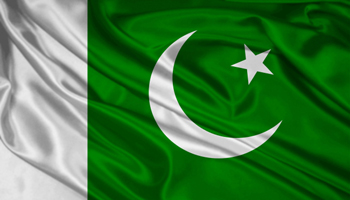Washington, Jan 30: There is a possibility in the future of including Pakistan in the list of countries from where immigration has been banned, a top White House official has indicated, acknowledging for the first time that Pakistan was under consideration to be put in that category of nations. "The reason we chose those seven countries was, those were the seven countries that both the Congress and the Obama administration identified as being the seven countries that were most identifiable with dangerous terrorism taking place in their country," White House Chief of Staff Reince Priebus, told CBS News.
 Trump has issued a controversial executive order banning immigration from seven Muslim-majority countries -- Iran, Iraq, Libya, Sudan, Yemen, Syria and Somalia. "Now, you can point to other countries that have similar problems, like Pakistan and others. Perhaps we need to take it further. But for now, immediate steps, pulling the Band-Aid off, is to do further vetting for people traveling in and out of those countries," Priebus said.
Trump has issued a controversial executive order banning immigration from seven Muslim-majority countries -- Iran, Iraq, Libya, Sudan, Yemen, Syria and Somalia. "Now, you can point to other countries that have similar problems, like Pakistan and others. Perhaps we need to take it further. But for now, immediate steps, pulling the Band-Aid off, is to do further vetting for people traveling in and out of those countries," Priebus said.
This is for the first time that the Trump Administration has publicly acknowledged about considering putting Pakistan into that list. Currently as per the executive order, visitors from countries like Pakistan and Afghanistan are subject to extreme vetting. Priebus said the executive orders were signed after a lot of planning. "We're not going to advertise to the world that we're going to put a stop or at least a further vetting on travel in and out of our country from these seven places," he said.
"Some people have suggested, that, well, maybe we should have given everyone a three-day warning. But that would just mean that a terrorist would just move up their travel plans by three days.Identifying too many people in these countries and giving them a heads-up in these countries would only potentially flag the executive order for bad order," Priebus said. "The President has a call with leadership in Saudi Arabia and the United Arab Emirates and other countries around world. And I'm sure this topic may come up," he said.
Priebus asserted that Americans have to be protected first. "These are countries that harbour and train terrorists. These are countries that we want to know who is coming and going in and out of to prevent calamities from happening in this country," he said.
"We're not willing to be wrong on this subject. President Trump is not willing to take chances on this subject. He was elected president in many respects because people knew that he was going to be tough on immigration from countries that harbour terrorists," Priebus said.
"I can't imagine too many people out there watching this right now think it's unreasonable to ask a few more questions from someone traveling in and out of Libya and Yemen before being let loose in the United States. And that's all this is," he said.





Comments
Add new comment